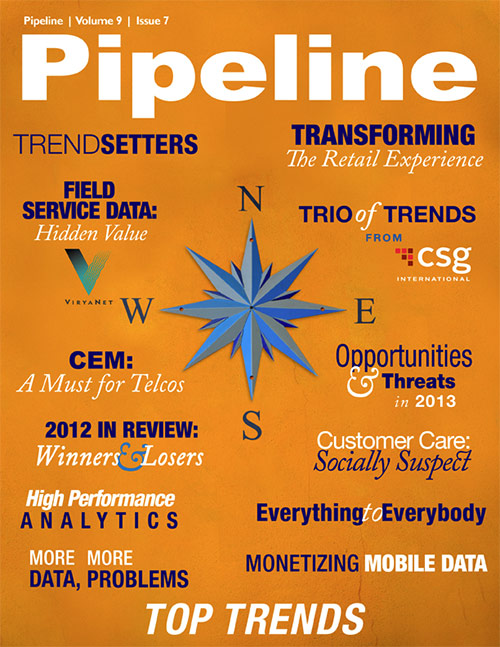High-Performance Data Analytics to the Rescue
Time to enhance mobile-services delivery based on real-time context and location
Mobile devices open up the possibility of delivering services based on a userâs location. But CSPs know that doing this the right way is not that easy.
Imagine itâs lunchtime and mom is on her way to an appointment with a new doctor. Sheâs running late, and sheâs desperately searching for the doctorâs address and a map on her smartphone. Suddenly, an ad for a nearby restaurant pops up on her screen. How annoying!
As a CSP your goal is to deliver location-based services that are relevant, provide value and, hopefully, generate revenue too. But if you risk aggravating your customer, your plan could backfire and negatively impact his or her experience.
Unfortunately, most CSPs today have to rely solely on historical customer data. But billing history and other information from years past are not enough to make good, on-the-spot decisions.
To ensure that location-based services are effective, you need to be able to analyze information about the customerâs most recent behavior and transactions in real time. Only then can you understand his or her current state of mind.
Real-time location analysis and behavior tracking provide important information about your targeted customer â not only where he or she is at a certain time but what type of activity the customer is likely to be engaged in. By using analytics technology that can sense what the customerâs behavior means, youâll be able to send contextually based, appropriate information at a time when he or she will be interested.
The result could be the difference between having an annoyed customer who decides to start shopping for another provider or having a loyal customer who is happy you can provide a service he or she needs at exactly the right time and place.
The value of high-performance analytics lies in its ability to help you find countless ways to be more successful. With high-performance analytics you can ask multiple what-if questions, add new variables to reflect changing market states, test new ideas, and evaluate new scenarios, all in a fraction of the time previously required and without any infrastructure constraints.
Without the advantages of this leading-edge technology CSPs are forced into vicious price wars to win and keep customers. A better answer is to operate more efficiently and effectively by creating a sustainable cost structure and operational foundation.
Donât waste time searching for a one-time âfixâ to all of your problems. Instead, turn to an analytic infrastructure that has built-in capabilities to adapt again and again.
SAS High-Performance Analytics allows you to make decisions with speed, and make them faster than your competitors. Designed to accommodate the unpredictable, ever-changing nature of our world, it can become a backbone for all your business analytics initiatives, today and tomorrow.
âYou have to think of all your data as a strategic asset. Donât let that asset go to waste. Use it to model, predict and understand your business better,â says Jim Goodnight, chief executive officer at SAS.
High-performance analytics helps you make better-informed business decisions by providing highly accurate and timely insights in minutes, not hours. Its analytical capabilities span data exploration, model development and model deployment, enabling you to solve complex problems in a highly scalable, distributed environment that uses in-memory processing resources.
Maintaining an analytically derived best plan for each customer is a proactive approach that significantly improves the odds of retaining profitable customers and selling new services.
High-performance analytics can also enable marketers to:
- identify social communities based on customersâ relationships;
- visualize previously unknown relationships between customers;
- uncover leaders, followers and other community members;
- improve customer retention, cross-sell and up-sell;
- target influencers more effectively.
âWhen analyzing big data with our high-performance analytics solutions, weâre quoting time savings of up to 92 hours,â says Jim Davis, senior vice president and chief marketing officer at SAS. âBut what does that mean? Or, as I like to ask, âSo what?â Well, itâs not just the time savings that matter. Itâs what you do with that time â and what youâre getting within that time frame â that matters.â
âIf you donât analyze all of your data because it might choke your analytic environment, then your problem is not too much data â you have the wrong analytic environment,â explains Oliver Schabenberger, research statistician at SAS. âWe donât want the amount or kind of data to limit the analytics you can do.â



















